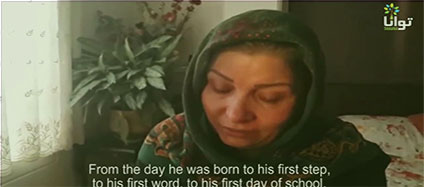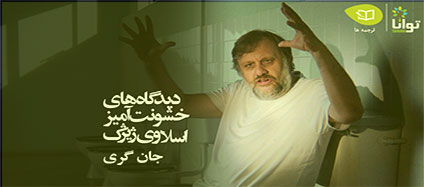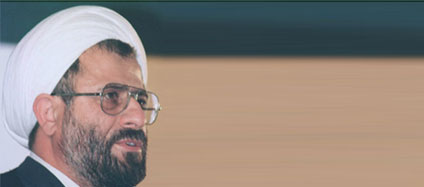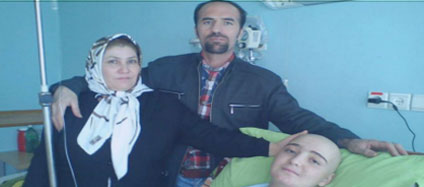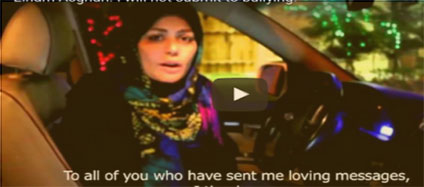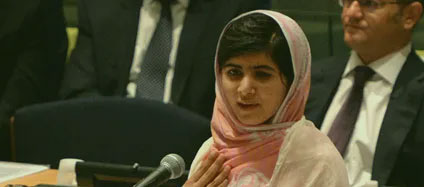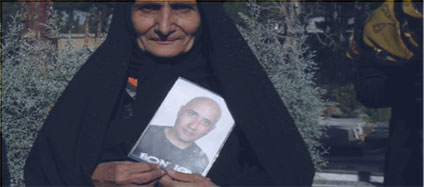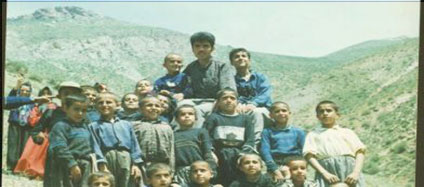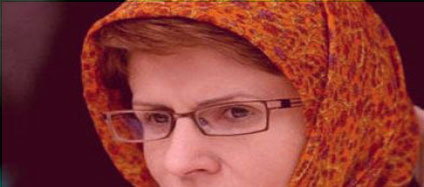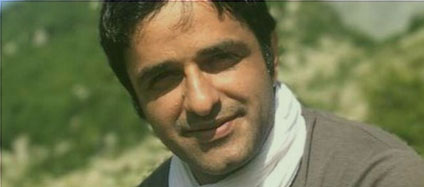The United Nation Secretary General, Mr. Guterres, of the United Nations
I extend my warmest and most sincere greetings to you and all esteemed representatives of free nations from within the confines of Mashhad Vakil Abad Prison.
As a youth, upon first encountering the term ‘United Nations,’ I couldn’t help but ponder why there was no representation for the Iranian ‘people’ within this body. Instead, individuals representing the oppressive regime had the platform to speak in our name. Was the world unaware, then and now, of the totalitarian nature of this regime? Through institutions like the Guardian Council, the regime has constructed a facade while systematically violating the rights of the Iranian nation and undermining fundamental values such as republicanism, independence, and freedom. All this is done through an authoritarian constitution that consolidates power in the hands of a single ‘leader’. Has Iranian people, a nation with such historical heritage, deserve the opportunity to have their voices heard through the United Nations?
Why is it that the representative of the Islamic Republic regime, who has consistently utilized the platform for intimidation, deception, and misrepresentation, including threats of destruction to other UN members, justifying the suppression of popular protests, and concealing interference in other nations’ affairs by providing financial support and weaponry to back dictators such as Al Assad in Syria, can claim to represent the Iranian nation? Meanwhile, democratic and pacifist intellectuals, who have endured torture, imprisonment, exile are not afforded a voice?
To become a member of the United Nations, a country must accept the UN Charter and conventions, and also abide by these principles in practice. These principles, undoubtedly a remarkable document created by humanity, serve as the foundation for international cooperation and peace.
Hasn’t the Islamic Republic accepted and signed the Universal Declaration of Human Rights and all its conventions? What impact does it have on the reliability and credibility of an organization when its members fail to implement the statutes?
In any organization, when a member commits a mistake and disregards the principles, they are first reprimanded and punished. If the behavior persists, membership may be revoked. Can any honourable member, aside from representatives of certain dictatorships allied with the Islamic Republic, attest to the regime’s full respect for human rights over the past 46 years?
For instance, five years ago, 13 people of my fellow activists and I issued a statement known as the “Statement of Fourteen” to peacefully oppose the dictatorship and advocate for a fundamental constitutional reform. In response, I received a 24-year prison sentence for what was called by [the region’s] Ministry of Intelligence and [its] judges an attempt to “forming group with the intention of disrupting internal security and overthrowing the government”. Other signatories, including my wife Shahla Jahanbeen, were also sentenced to prolonged prison terms. Currently, five of us, namely Javad La’l Mohammadi, Mohammad Hossein Sepehri, Hashim Khastar, Fatemeh Sepehri and I, Abbas Vahedian Shahroudi are serving our sentences in Mashhad, while Mohammad Nourizad and Zartosht Ahmadi Ragheb are imprisoned [elsewhere]. While it may not be feasible to revoke the regime’s representatives’ UN membership, I urge you to consider the following requests as proposals for the future, in solidarity with our suffering nation and all nations oppressed by tyranny.
First, please dedicate at least half of the time that leaders of despotic governments, such as Iran’s, have to opposition figures. This will provide them with the opportunity to address the realities faced by their people, including suffering, needs, repression, and human rights violations, countering the lies and concealment of truths by dictatorial representatives.
A significant number of Iranian opposition groups support democracy and peace. Over the last 46 years, they have made significant sacrifices for freedom and democracy. They prefer peaceful solutions and reject violence to fight dictatorship. Rather than believing the regime’s lies, the world would gain by hearing from Iranian democratic activists who want a peaceful, compassionate future for their country, its neighbours, and the world.
Secondly, the regime’s extensive history of human rights violations [has been widely acknowledged and] does not to be proven. The ongoing repression of the Iranian people has created a volatile situation, with widespread discontent among various segments of society, and brought resentment to millions of men and women. This includes rampant poverty and the harsh realities rendering life an experience as bitter as death. Fuelled with a deep sense of frustration, the country is at risk of a civil war. A country divided into two opposing sides of a regime-dependent with substantial advantages on one hand and a majority who have left nothing but their dignity, necessitate preventive means to avoid further escalation. Such a conflict would have devastating regional and global consequences, potentially worse than the world witnessed in Syria.
For years, government opponents have lacked organized parties due to the regime’s suppression of any such efforts. I propose the establishment of a “Human Rights and Democracy Education System” to mobilize and educate people for non-violent movements and uprisings. If the United Nations or its affiliated institutions protect this system, it could effectively counter the regime’s repression. However, since the UN refrains from intervening in countries’ internal affairs, the aim could be to promote constitutional principles, implementing the principles of the Universal Declaration of Human Rights, and support the advancement of social freedoms in countries with low rankings in this regard.
There’s a potential to compel the regime to acknowledge the organizational activities of such an entity by leveraging membership in the United Nations and the commitments made to uphold the Universal Declaration of Human Rights. If people learn that they can participate freely in a system overseen by the United Nations and they are immune to [arbitrary] custody, millions will join. [This is evident if one considers] the labour unions, market sectors, women’s rights movements[‘ members], socialists and liberal political parties, nationalist groups, republicans. If everyone knows they can voice their demands freely in the streets without fear of repression or violence, they’ll move towards a national consensus and coordinated peaceful efforts to reclaim power through a free referendum under UN supervision, rather than descending into chaos and anarchy.
Looking at the Iranian society, [I believe] if we cannot set up such a system, we will see an eruption in the near future. Unlike the failed uprising of the Syrian people, such an eruption will collapse the dictatorship of the Islamic Republic, but at a devastating cost to all sides, leaving the nation with destroyed cities and fatalities after bloody events, and millions of displaced people, which lay the foundation for future crises in the region and the world.
The regime must learn that it will face severe punitive consequences from international entities such as blocking assets, expanding sanctions if it continues sham trials and cases, suppressing peaceful and nonviolent activities, and the murder and imprisonment of political prisoners.
The situation of political prisoners and the pressures on their families are deeply concerning, including the use of biological and unknown methods to inflict illness, as well as the employing prison thugs as wards’ seniors to mistreat political prisoners. These actions have been carried out against me and my friends, including Kamal Jafari Yazdi, Javad La’l Mohammadi, Hashim Khastar, and Mohammad Hossein Sepehri, multiple times over the past two years.
I hope that by taking these suggestions, we can bring a ray of hope into the hearts and these dark cells. I wish for a world filled with peace and love for all people. A world where governments prioritize spreading kindness and compassion, and respect for human rights, instead of expanding facilities for mass slaughter and missiles under the guise of deterrence. A world devoid of any gender, racial, or religious discrimination, where human beings are respected as they serve others.
A world with wise people who understand that every land belongs first to the Lord, then to the people who live and strive for its prosperity, and do not allow any tyrant to exploit their ignorance to establish a tyrannical regime. A world without dictators, warlords, plunderers, oppressors, and enemies of humanity. A world free from torture, execution, and violence. A world where industrialists and capitalists, understanding the fact that the earth, with all its vastness, is like a shared home, where pollution of its water, soil, and resources affects all its inhabitants, including them, maybe not today, but surely tomorrow.
It may seem like a dream, but the growth and ingenuity of humanity in recent centuries have shown that with reliance on knowledge and awareness, anything is possible.
The ailing body and weary spirit of this prisoner may not see that day, but I am glad that I, to the best of my ability, albeit in small measure, have endeavored for the emergence of such a world.
Respectfully,
Abbas Vahedian Shahroudi
April 10, 2024
Vakilabad Prison, Mashhad


